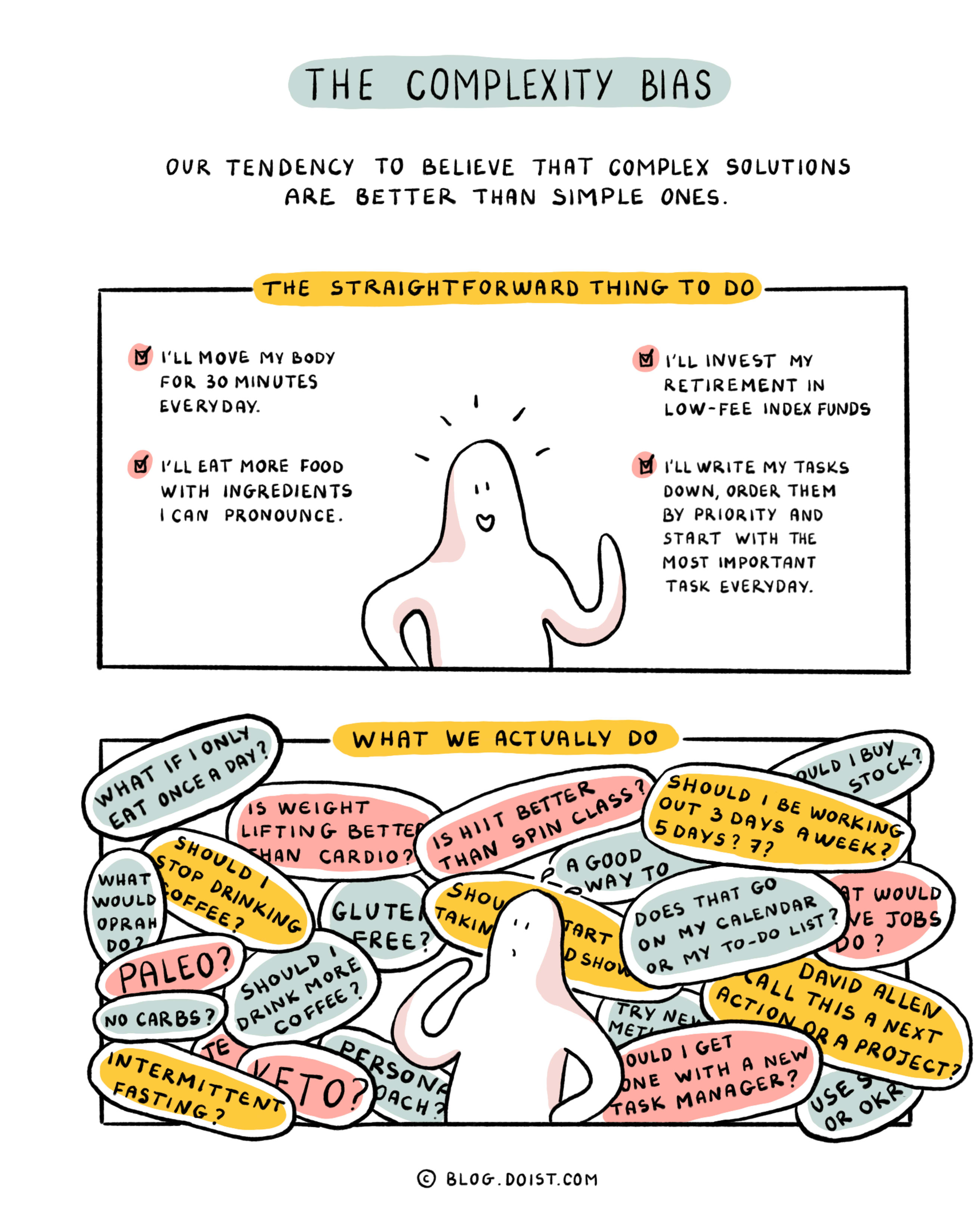
Why choose a simple explanation when a complex one will do? Complexity bias describes our tendency to prefer complicated explanations and solutions over simple ones.
It’s why we debate the science of intermittent fasting and ketogenic diets instead of following Michael Pollan’s advice to “Eat food, not too much, mostly plants.” It’s why we pay financial planners to tell us how to save for retirement instead of taking 15 minutes to open a Vanguard account, select an index fund, and set up an automatic monthly deposit. And it’s why we’re drawn to the finicky intricacies of productivity systems like Getting Things Done instead of simply working on our most important tasks first.
Complexity can keep life interesting, as when we develop complex rituals for making a simple cup of coffee or when we carefully tend our sourdough starters for the perfect loaf of bread. However, complex systems are more difficult to maintain over time.
In addition, the perception of complexity often leads to avoidance. When we think something is difficult to do or understand, we don’t even try. If we believe that organizing our lives requires a complex system like GTD, we’re less likely to experiment with a simpler system we might have a better shot at sticking to. The trick is to embrace complexity when you genuinely enjoy the process, but don’t let the perceived complexity keep you from getting started.
What you can do about it:
Develop a bias for action over research. You don’t have to fully understand a concept to get started. Instead of seeking perfect knowledge at the start, take an iterative approach to your endeavors: Try things, see how they work, and slowly improve over time. It’s the fastest way to learn. Done is better than perfect.
Choose the system you’ll stick with. It may be that intermittent fasting is objectively the best way to burn fat or that GTD is the ideal way of organizing your tasks, but it won’t do you any good if you can’t stick to it long-term. Look for systems that work with your natural inclinations, even if they aren’t the "best" way of doing things.
Apply Occam’s Razor. Occam’s Razor states that, when faced with two possible explanations for the same evidence, the one that requires the fewest assumptions is most likely to be true. While there are exceptions to every mental model, Occam’s Razor is a good rule of thumb for counterbalancing the complexity bias.
More reading if you’re interested:
Complexity Bias: Why We Prefer Complicated to Simple
How to Use Occam’s Razor Without Getting Cut
The Science of Analysis Paralysis & Why It Kills Your Productivity
Comic artwork by Anaïs Pirlot-Mares 🎨 Written by Becky Kane ✏️
